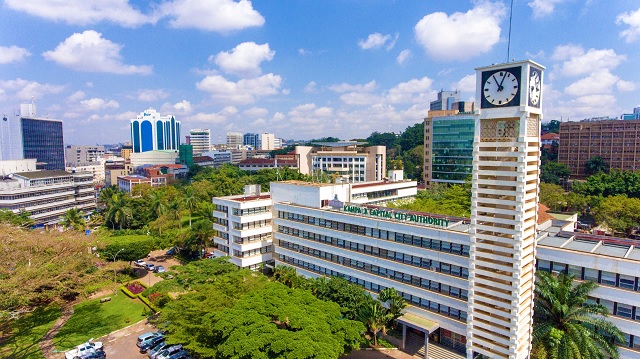
Kampala, Uganda | THE INDEPENDENT | There are mixed reactions among city Landlords on newly approved property tax rates by Kampala Capital City Authority-KCCA. On Tuesday, the KCCA council chaired by the City Lord Mayor, Erias Lukwago passed new Property tax rates placing a of 4% tax burden on property generating Shillings 5 million and below and 6% for property generating above Shillings five million annually.
The tax applies to the ratable value of the property, which according to the Local Government Act is 74% of the revenue generated from the property. Only individual commercial properties are subject to this tax that KCCA has been charging at a uniform rate of 6%.
Milly Nabwami, a Landlord in Kamwokya Kifumbira zone 2 has welcomed the new rates but says it is still high and hard to meet. Nabwami owns four rooms that she rents out at Shillings 80,000 each. She says that the property valuation exercise, KCCA asked her to pay Shillings 60,000 for each house hence Shillings 240,000 a year for her four rooms, which she says sounds reasonable.
She however, says that sometimes tenants don’t pay on time while others pay in installments, which makes it hard for her to save for tax yet the structures are the only source of income for her and her family.
She however, says KCCA’s move seems thoughtful of the low income Landlords but asks for more. She says that the 2% reduction from 6% to 4% is hardly achievable for people in her situation. Nabwami says that KCCA needs to enhance data collection during the property valuation exercise to plan for the urban poor struggling to earn a living by renting out low cost houses.
She says that KCCA needs to note the circumstances, under which some of them as urban poor operate in so as to offer a better deal. Although the law sets ratable value at 74% of the revenue leaving the other percentage to cater for utilities and other expenditures, Nabwami says the percentages need further revision and possibly exempt some people.
The Landlords whose property falls under 4% that URN talked to embraced the changes but still sought for more. They say that apart from being their major source of income, they also deal with low income earners who often default while others use the law to cheat them.
“When you ask a tenant to pay you or leave your house when they continue defaulting, they say we should give them three more months of unpaid accommodation before they leave. And when they leave, new tenants want the house fixed before they take it up, which could also cost you almost the same or more than what the tenants has paid for rent. You end up making a loss of three months unpaid for by the previous tenant and one month for refurbishing the house” said one of the tenants.
Another Land lord only identified as Valence, says that while the new rates might not make that much difference, they are plausible and of an advantage to land lords in the lower category.
“We cannot disobey the state, we still shall have to pay but this money is still high nevertheless,” said Valence. Godfrey Kirumira, the Chairman Kwagalana Group, an association of property owners in Kampala, says the reductions are good since they benefit some Land Lords.
He says lower rates are affordable and can raise levels of compliance among tax payers. However, he is of the opinion that KCCA should have adopted a lower and uniform rate for all land lords say 4% of the ratable value of all property in Kampala indiscriminately.
Kirumira says that Land Lords seem to be earning little from their structures.
Property tax is the highest contributor of KCCA Non Tax Revenue-NTR. KCCA anticipates collecting about Shillings 112 billion in 2020/2021 financial year with property tax contributing over Shillings 50 billion. According to KCCA, the new rates shall cost it only Shillings 6 billion to collect.
******
URN
 The Independent Uganda: You get the Truth we Pay the Price
The Independent Uganda: You get the Truth we Pay the Price





